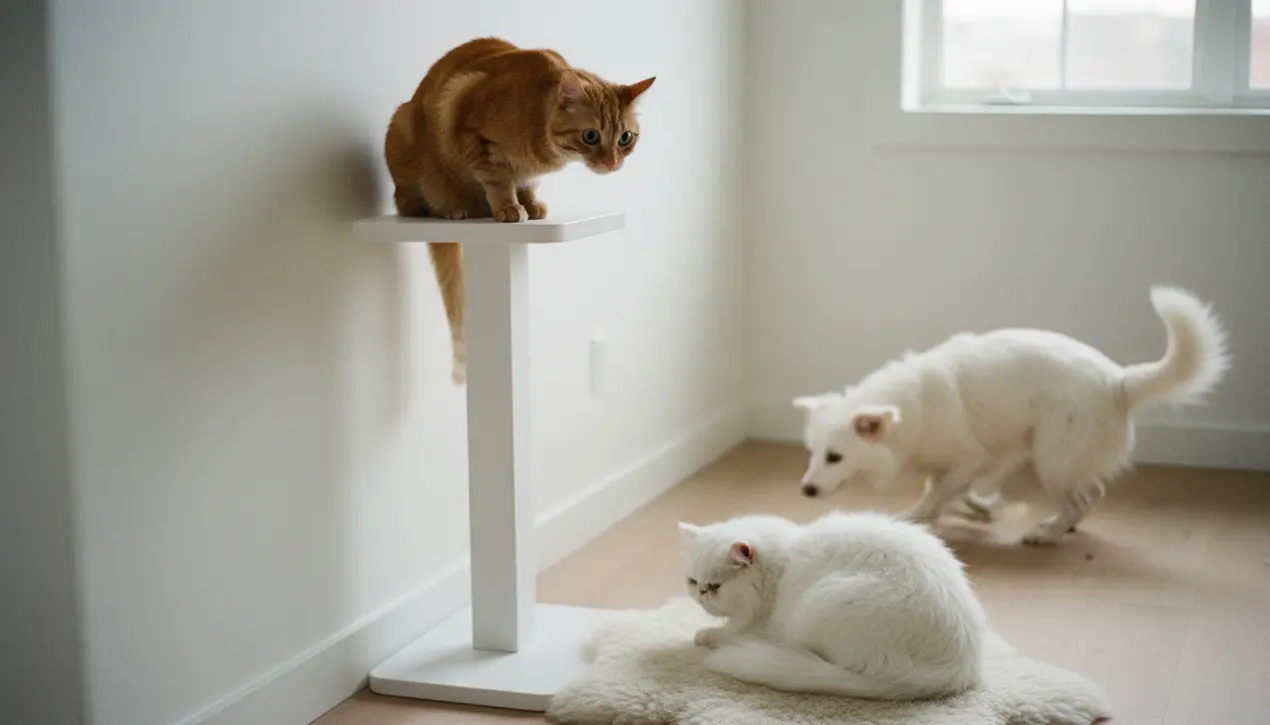
ScienceneuroscienceNeuroplasticity
Research Suggests Pets May Be Neurodivergent Like Humans
LA
Laura Bennett
8 hours ago7 min read2 comments
If you've ever watched your dog chase its tail with an intensity that borders on obsession, or your cat stare intently at a blank wall for minutes on end, you might have sensed there was more to their behavior than simple animal instinct. A fascinating new wave of research, spearheaded by experts like Jacqueline Boyd, a Senior Lecturer in Animal Science, is beginning to suggest that our beloved pets may experience forms of neurodivergence, much like humans with ADHD or autism.This isn't about pathologizing normal pet behavior, but rather about developing a deeper, more empathetic understanding of the rich inner lives of the creatures who share our homes. Think about the hyperactive border collie who can't settle, constantly herding children and other pets—its relentless drive mirroring the hyperfocus and restlessness seen in ADHD.Consider the anxious rescue cat that startles at the slightest sound and resists being held, displaying sensory sensitivities and social avoidance patterns that feel deeply familiar to many on the autism spectrum. For decades, veterinarians and animal behaviorists have used terms like 'canine compulsive disorder' to describe repetitive behaviors such as tail-chasing or flank-licking, which bear a striking resemblance to human stimming, a self-regulatory behavior common in neurodivergent individuals.This paradigm shift forces us to move beyond seeing these traits as mere 'quirks' and to appreciate them as fundamental aspects of an animal's neurology. The implications are profound, touching on everything from how we train our pets to the very ethics of selective breeding.If we accept that neurodivergence exists across species, it challenges the long-held belief that complex cognitive and emotional experiences are exclusively human domains. It suggests that the spectrum of mind is a universal phenomenon, woven into the fabric of the animal kingdom.This research encourages us to become better interpreters of our pets' needs, to create environments where a noise-sensitive dog isn't forced to endure a loud party, or where a routine-obsessed cat can find comfort in predictability. It’s a call to move from command-based obedience to a partnership built on mutual understanding, recognizing that the 'problem' might not be the pet's behavior, but our own failure to comprehend their unique way of processing the world. Ultimately, this isn't just about science catching up to what many pet owners have intuitively felt for years; it's about forging a more compassionate and nuanced bond with the animals we love, seeing their differences not as disorders to be fixed, but as variations to be understood and embraced.
#featured
#pets
#neurodivergence
#animal behavior
#veterinary science
#ADHD
#research
Stay Informed. Act Smarter.
Get weekly highlights, major headlines, and expert insights — then put your knowledge to work in our live prediction markets.
Related News
Comments
Loading comments...
© 2025 Outpoll Service LTD. All rights reserved.